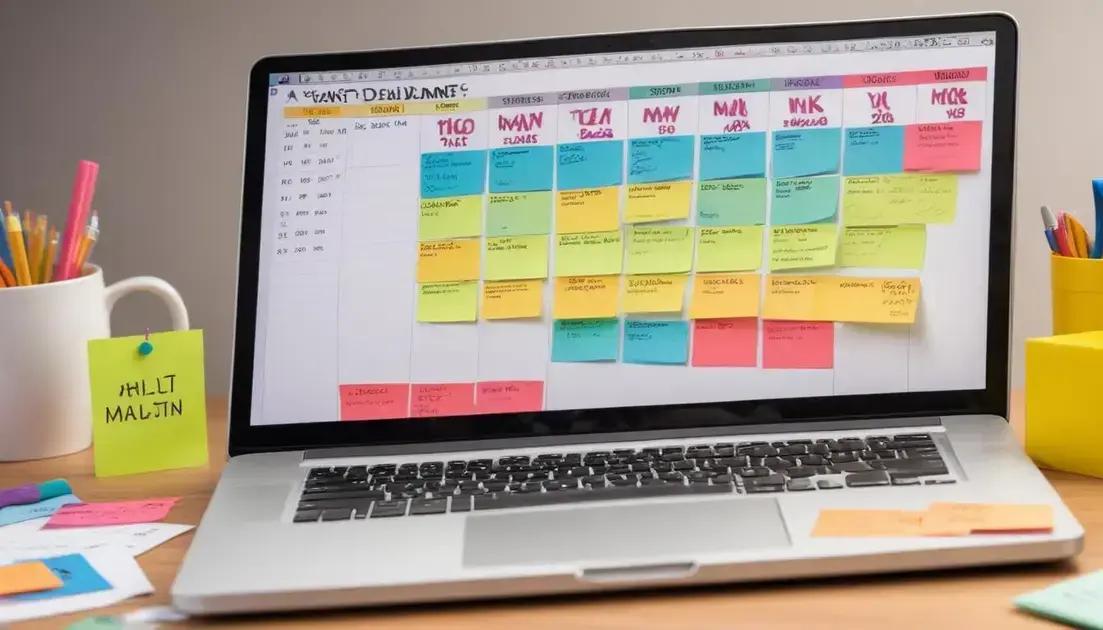Government grants for individuals

Ever wondered how government grants for individuals could ease your financial burdens? Unlike loans, these grants offer free money—no repayment needed. Let’s dive into how you can tap into this opportunity.
What are government grants for individuals?
Government grants for individuals are funds provided by federal, state, or local governments to help people cover expenses like education, housing, healthcare, and small business startups. Unlike loans, grants do not need to be repaid, making them a valuable financial resource.
How Do Government Grants Work?
Government grants are typically awarded based on financial need, eligibility criteria, or specific project proposals. Agencies review applications and distribute funds to qualified individuals who meet their requirements.
Common Types of Grants
Some popular grants include Pell Grants for education, housing assistance grants, and small business grants for entrepreneurs. Each has unique qualifications and application processes.
Applying for a grant involves researching opportunities, gathering required documents, and submitting a well-prepared application. Missing deadlines or incomplete forms can lead to rejection.
Why Consider Government Grants?
Grants provide financial support without debt, making them ideal for students, low-income families, and aspiring business owners. They can help bridge gaps when other funding sources fall short.
Types of government grants available
Government grants come in many forms, each designed to support different needs. Education grants, like the Pell Grant, help students pay for college, while housing grants assist low-income families with rent or home repairs.
Small Business and Startup Grants
Entrepreneurs can access grants through programs like the Small Business Innovation Research (SBIR) program. These funds help launch or expand businesses without taking on debt.
Healthcare and Research Grants
Individuals pursuing medical research or needing healthcare assistance may qualify for grants from agencies like the National Institutes of Health (NIH) or local health initiatives.
Other grants support energy efficiency upgrades, agricultural projects, and artistic endeavors. Each has specific eligibility rules, so research is key before applying.
Who qualifies for government grants?
Eligibility for government grants depends on several factors including income level, purpose of funding, and demographic characteristics. Most grants target specific groups like students, low-income families, veterans, or minority business owners.
Income Requirements
Many grants prioritize applicants below certain income thresholds. For example, Pell Grants use Expected Family Contribution (EFC) calculations to determine financial need.
Special Circumstances
Some grants assist specific situations like single parents, disabled individuals, or displaced workers. Disaster relief grants help those affected by natural calamities.
Business Grants
Entrepreneurial grants often require a viable business plan and may favor women-owned, minority-owned, or green businesses. Some target specific industries like technology or agriculture.
Documentation like tax returns, identification, and project proposals are typically required. Meeting deadlines and following instructions precisely improves approval chances.
How to find government grants for individuals
Finding government grants starts with knowing where to look. The official government website Grants.gov is the primary source, listing thousands of federal grant opportunities across all categories.
State and Local Resources
Don’t overlook state government portals and local community organizations. Many states have economic development offices that offer grants not listed on federal sites.
Specialized Databases
Websites like Benefits.gov and Foundation Center compile grants from various sources. Filter by category (education, housing, business) to find relevant options.
Professional Assistance
Consider consulting with Small Business Development Centers or nonprofit organizations that specialize in grant searches. Many offer free guidance on finding and applying for grants.
Set up email alerts for new grant postings and regularly check agency websites in your field of interest. Persistence and thorough research significantly improve your chances of finding suitable grants.
Step-by-step guide to applying for grants

Applying for government grants requires careful preparation. Start by registering with Grants.gov, which creates your unique applicant profile needed for all federal grant submissions.
Preparing Your Application
Gather all required documents including tax returns, identification, and project proposals. Most grants require a detailed budget breakdown showing how funds will be used.
Writing a Compelling Narrative
Your application should clearly explain why you need the grant and how it will be used. Use specific examples and measurable goals to strengthen your case.
Submission Process
Submit applications before the deadline through the official portal. Keep copies of all materials and confirmation receipts. Some grants may require additional steps like interviews or site visits.
After Submission
Track your application status online. If rejected, request feedback to improve future applications. Successful applicants should carefully follow all reporting requirements.
Common mistakes to avoid when applying
Many grant applications get rejected due to avoidable errors. Missing deadlines is the most common mistake – set reminders for both the application deadline and any prerequisite registration dates.
Incomplete Applications
Submitting forms with missing signatures, incomplete sections, or unattached supporting documents will disqualify you immediately. Double-check all requirements before submitting.
Generic Proposals
Avoid using boilerplate language or copying from other applications. Tailor each proposal to the specific grant’s objectives and priorities.
Budget Errors
Unrealistic budgets or unjustified expenses raise red flags. Ensure every dollar is accounted for with clear explanations.
Ignoring Instructions
Each grant has specific formatting and submission rules. Failing to follow font size requirements, page limits, or file naming conventions can get your application rejected before review.
Success stories of individuals who secured grants
Real success stories prove government grants can transform lives. Maria Rodriguez, a single mother, used a Pell Grant to complete nursing school, tripling her income and buying her first home within three years of graduation.
Small Business Success
James Chen launched his eco-friendly packaging company with an SBIR grant, growing from a home operation to employing 15 people in just two years. His secret? Precise alignment with the grant’s environmental mission.
Community Impact
A $50,000 community development grant helped retired teacher Dorothy Wilson create a neighborhood literacy program that has now served over 200 at-risk children in her urban community.
Keys to Their Success
These winners shared common strategies: thorough research to find the right grants, compelling storytelling in applications, and meticulous follow-through on reporting requirements.
Their experiences show grants can be life-changing when approached strategically. While competitive, success leaves a paper trail others can follow.
How to maximize your chances of approval
Winning government grants requires more than just meeting basic requirements. Start early – top applicants often begin preparing 3-6 months before deadlines to craft standout proposals.
Research is Key
Study past winning applications when available, and thoroughly analyze the grantor’s mission statement to align your proposal with their priorities.
Build Relationships
Connect with grant officers through informational interviews and attend any pre-application workshops. These contacts can provide invaluable guidance.
Strengthen Your Narrative
Use data-driven arguments and compelling storytelling to demonstrate both need and potential impact. Quantify everything possible.
Review Process
Have multiple reviewers check your application – including someone unfamiliar with your project who can spot unclear explanations.
Follow up professionally after submission, and whether successful or not, request feedback to improve future applications.
Resources for tracking grant opportunities
Staying updated on grant opportunities requires using the right tracking tools. Grants.gov remains the most comprehensive federal database, offering email alerts for new postings matching your criteria.
Specialized Tracking Platforms
Services like Instrumentl and GrantWatch provide customized searches and deadline tracking across thousands of government and private grants.
Government Agency Newsletters
Subscribe to newsletters from agencies like the SBA, NIH, and Department of Education – they often announce funding opportunities before they appear on general databases.
Local Resources
Check with your local library, community foundation, or Small Business Development Center – many maintain updated lists of regional grant programs.
Organization Tools
Create a spreadsheet tracker with deadlines, requirements, and application status. Cloud-based tools like Notion or Airtable can help manage multiple opportunities.
Set aside dedicated time each week to review new opportunities and update your tracking system.
Deadlines and timelines for grant applications

Understanding grant timelines is crucial for successful applications. Most government grants follow annual cycles, with the same programs opening at similar times each year.
Typical Application Phases
The grant process usually includes: Notice of Funding Opportunity (NOFO) release, application period (typically 30-90 days), review period (3-6 months), and award announcements.
Critical Dates to Track
Mark these key deadlines: registration cutoffs (often 2-4 weeks before submission), pre-application webinars, and final submission dates (usually 11:59 PM ET on the due date).
Seasonal Patterns
Federal education grants often open in early fall, small business grants in Q1, and community development grants in spring. State grants may follow different schedules.
Planning Your Timeline
Start preparing 6-8 weeks before deadlines for simple applications, 3-6 months before for complex proposals requiring research or partnerships.
Set interim deadlines for completing sections, getting reviews, and final edits to avoid last-minute rushes.
Alternatives if you don’t qualify for grants
If government grants aren’t an option, several alternatives can provide financial support. Low-interest loans from credit unions or community development financial institutions often offer better terms than traditional banks.
Crowdfunding Platforms
Sites like Kickstarter and GoFundMe allow you to raise funds from individuals who believe in your project or cause.
Local Business Competitions
Many communities host pitch competitions with cash prizes for promising business ideas or social initiatives.
Corporate Sponsorships
Companies often provide community investment funds or in-kind support for projects aligning with their corporate social responsibility goals.
Barter and Trade
Consider exchanging services with other businesses or professionals to get what you need without upfront cash.
While not free money like grants, these alternatives can bridge the gap when traditional funding isn’t available.
Key Takeaways on Government Grants
Government grants for individuals offer valuable financial support that doesn’t require repayment, but securing them requires preparation and persistence.
By understanding the different types of grants available, carefully following application procedures, and avoiding common mistakes, you can significantly improve your chances of success.
Remember that even if you don’t qualify for grants initially, alternative funding options exist to help you achieve your goals.
The effort you put into researching and applying for grants today could lead to life-changing financial support tomorrow.






